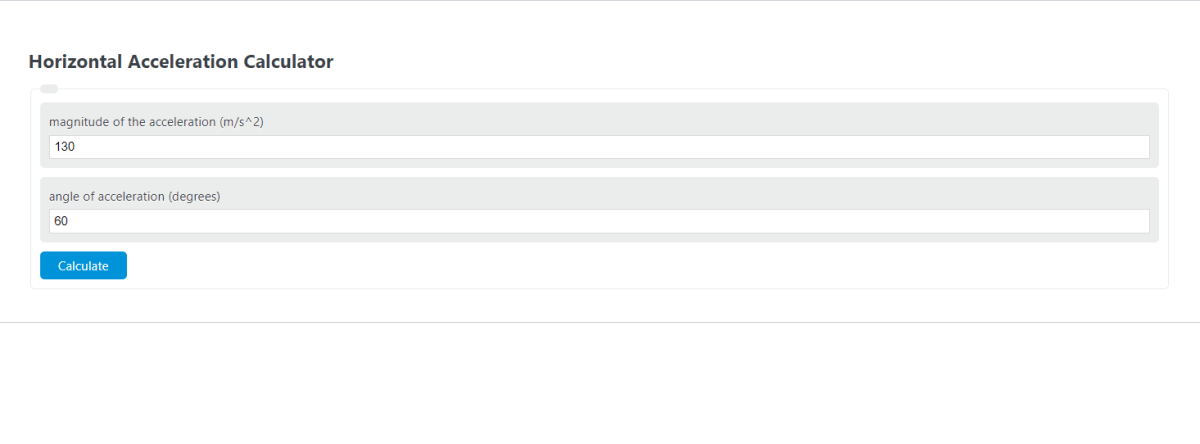Enter the magnitude of the acceleration and the angle of the acceleration into the calculator to determine the Horizontal Acceleration.
- All Acceleration Calculators
- Vertical Acceleration Calculator
- Angle of Acceleration Calculator
- Vector Acceleration Calculator
- Net Acceleration Calculator
- Joules to Acceleration Calculator
Horizontal Acceleration Formula
The following equation is used to calculate the Horizontal Acceleration.
Ax = A * Cos(a)
- Where Ax is the Horizontal Acceleration (m/s^2)
- A is the magnitude of the acceleration (m/s^2)
- a is the angle of acceleration (degrees)
To calculate the horizontal acceleration, multiply the magnitude by the cosine of the angle of the direction.
What are the units for Horizontal Acceleration?
The most common units for Horizontal Acceleration are m/s^2.
How to Calculate Horizontal Acceleration?
Example Problem:
The following example problem outlines the steps and information needed to calculate the Horizontal Acceleration.
First, determine the magnitude of the acceleration. In this example, the magnitude of the acceleration is determined to be 130 (m/s^2).
Next, determine the angle of acceleration. For this problem, the angle of acceleration is measured to be 60 (degrees).
Finally, calculate the Horizontal Acceleration using the formula above:
Ax = A * Cos(a)
Inserting the values from above and solving the equation with the imputed values gives:
Ax =130 * Cos(60deg) = 65 (m/s^2)
